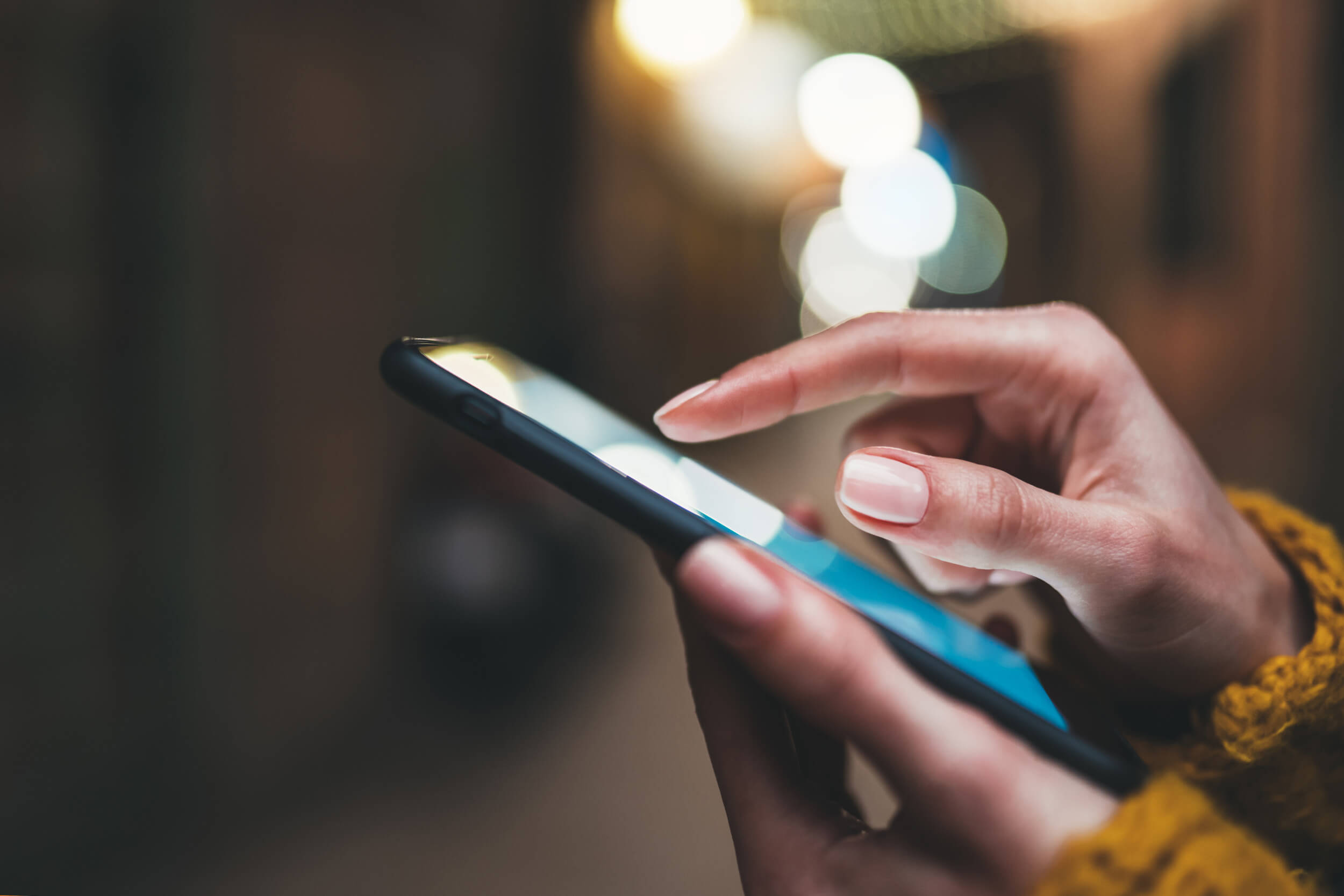Your phone might be in your hand more than you realize. You check it for one thing, then end up scrolling through five apps without meaning to. It’s become a habit—and not always a healthy one. What feels small in the moment can slowly chip away at your energy, focus, and mood.
There’s more to watch for than just a low battery. When your phone is draining your attention, your sleep, or your peace of mind, it’s worth noticing. These changes can creep in quietly, but they matter.
This isn’t about ditching your phone. It’s about spotting the signs that it’s taking more than it gives. The list ahead walks through everyday habits that signal it might be time to log off—just long enough to feel like yourself again.
You Check Your Phone Without Realizing It
Reaching for your phone without thinking happens more than most of us like to admit. No alerts, no pings—just a habit that kicks in during quiet moments. It’s the automatic scroll at a red light or unlocking your screen while waiting in line.
This kind of unconscious use is one of the first signs your phone is draining your focus. It pulls your attention in small bursts, leaving your mind scattered by the end of the day.
Try a few of these to break the pattern:
- Set a lock screen timer or visual reminder (like “Do you really need this right now?”)
- Turn your screen to grayscale—it makes apps less tempting
- Move your most-used apps off your home screen
Staying aware of how often you check your phone can be the first step toward feeling more present—and less pulled in every direction.
Notifications Feel Urgent—Even When They’re Not
Buzz. Ding. Flash. It’s easy to feel like every alert needs your attention right now. But most of them don’t. That pressure to respond immediately? It’s often just habit, not real urgency.
Phones are designed to train your brain to react—chasing small hits of satisfaction every time you check. That’s why you might even feel a “phantom vibration” in your pocket when nothing happened.
All that stress over missed pings adds up. It clouds your thinking, makes you jumpy, and drains your mental energy fast.
Here’s what helps:
- Turn off non-essential notifications
- Keep your phone on “Do Not Disturb” for a few hours each day
- Move your charging spot to another room during work or meals
Reducing alert overload helps you spot when your phone is draining more than it’s giving—and that’s a signal to slow things down.
Social Media Makes You Feel Worse, Not Better
Opening your favorite app used to be fun. Now, you close it feeling annoyed, behind, or just…off. That’s not by accident. Comparing your day to someone else’s highlight reel can chip away at how you feel about your own life.
The scroll seems harmless at first, but watch for these signs:
- You feel down or irritable after using it
- You lose track of time and feel guilty later
- You find yourself picking apart your own appearance, work, or life
Try this simple habit:
- Before you open the app, rate your mood from 1–10
- Scroll like you normally would for a few minutes
- Check in again—has your mood changed?
If it keeps getting worse instead of better, that’s a clear sign your phone is draining your energy instead of helping you unwind. A small break—even just one day off social—can make a big difference in how you feel.

You Struggle to Focus Without Background Noise or a Screen
Silence used to feel calm. Now it feels…weird. If you can’t sit still without needing a podcast, a video, or your phone nearby, your attention span might be running on low.
Your phone can become a kind of “mental fidget toy”—something you use to avoid boredom or hard thoughts. But always needing background noise means your brain never fully rests.
To bring back focus, try this:
- Do one simple task a day without background sound—fold laundry, eat a meal, walk around the block
- Keep your phone out of reach while doing it
- See how it feels to be quiet again
You don’t need to quit screens completely. But even small breaks help reset the noise. When your phone is draining your focus nonstop, stillness is where it starts to return.
You Feel Tired, But You Haven’t Done Much
Feeling wiped out, even though your day wasn’t that busy? That’s not laziness. That’s brain fatigue—and phones play a big part.
Constant swiping, switching apps, and checking messages keeps your brain in a loop. It never really slows down. Even if you’re just sitting, your mind is juggling tabs.
To recharge your brain, not just your phone:
- Go for a walk without headphones or your phone
- Take a 15-minute nap with no screens before or after
- Try sitting on the couch for 10 minutes doing nothing at all
These small moments help clear the fog. If your phone is draining your energy more than it should, rest doesn’t mean more scrolling—it means less.
You Avoid Tasks by “Just Checking Something”
Planning to send a message but end up deep in videos? That’s not random—it’s a delay tactic. Phones are great at helping you avoid stuff you don’t want to do.
It feels like you’re being productive (“I just need to check the weather”), but really, you’re stalling. One check leads to another, and the task still isn’t done.
The trick is building “tech intention.” That means:
- Ask yourself before opening your phone: What am I here to do?
- Say it out loud if you need to—“I’m checking my calendar”
- When you finish, put it down right away
You don’t have to be perfect. But if you find yourself stuck in these loops often, your phone is draining your time and focus without you noticing. Being more intentional helps you take back control.
You’re Present Physically, But Not Mentally
Conversations feel different when your mind is somewhere else. Maybe someone’s talking to you, but you’re halfway through a message. Or you pull out your phone the second there’s a pause in the chat.
These small habits can quietly chip away at your relationships. They make people feel unheard, and you miss out on real connection—even with people right in front of you.
To stay grounded in the moment:
- Put your phone face-down or in another room during meals
- Make bedtime a phone-free zone
- Set a “no scrolling” rule when you’re with loved ones
If your phone is draining your ability to be present, these small boundaries help you bring your attention back to what matters.
Your Sleep Is Getting Worse
Lying in bed with your phone feels harmless. You’re just winding down, right? But one more scroll can turn into an hour, and your brain stays alert long after you’ve put the phone down.
Blue light gets the blame, but the real issue is what you’re looking at. News, videos, messages—it all keeps your brain wired, not rested.
Better sleep starts with these small changes:
- Set a “cut-off” time for screens, at least 30–60 minutes before bed
- Replace phone time with a simple routine: reading, stretching, or a warm shower
- Keep your phone out of reach (or out of the room)
When your phone is draining your sleep, your body never gets a full reset. Creating a “wind-down buffer” gives your brain a chance to truly rest. The result? Deeper sleep, clearer mornings, and less mental fog.
You Feel Anxious or Unsettled When It’s Not Nearby
Walking out the door without your phone shouldn’t feel like a crisis—but sometimes, it does. You pat your pockets, check your bag, and feel uneasy until it’s back in your hand.
This isn’t about missing an emergency call. It’s about the emotional pull your phone has built over time. Being reachable 24/7 has made many of us feel like we have to be online at all times.
You can ease that grip with small, steady steps:
- Leave your phone in another room during short tasks
- Take 10–15 minute breaks during the day with no screens
- Try one outing a week (like a walk or grocery run) without your phone
If your phone is draining your sense of calm just by not being near you, it’s time to create some breathing room.
You Can’t Remember the Last Time You Were Truly Bored
Every spare moment now gets filled. Waiting in line? Scroll. Riding in the car? Scroll. Sitting alone for five minutes? Scroll again.
Always needing to be “doing something” means your brain never gets to rest. But boredom isn’t bad—it’s actually where ideas, clarity, and calm often begin.
Let your mind wander again by trying this:
- Leave your phone behind when you walk
- Sit in silence for five minutes a day
- Resist the urge to fill gaps with screens
When your phone is draining every quiet space in your day, boredom disappears—and so does creativity. Letting a little boredom back in can be more powerful than you think.
Final Thoughts: Logging Off Is a Power Move
Logging off doesn’t mean you’re doing something wrong—it means you’re paying attention to what you need. Taking a break isn’t about missing out. It’s about showing up better, with more energy and a clearer mind.
You don’t have to ditch your phone or quit your apps. You just need to notice when your phone is draining your focus, sleep, or peace—and step back long enough to feel like yourself again.
Sometimes, the best way to feel recharged isn’t plugging in. It’s putting the screen down, taking a breath, and remembering that real life doesn’t happen through a feed.














